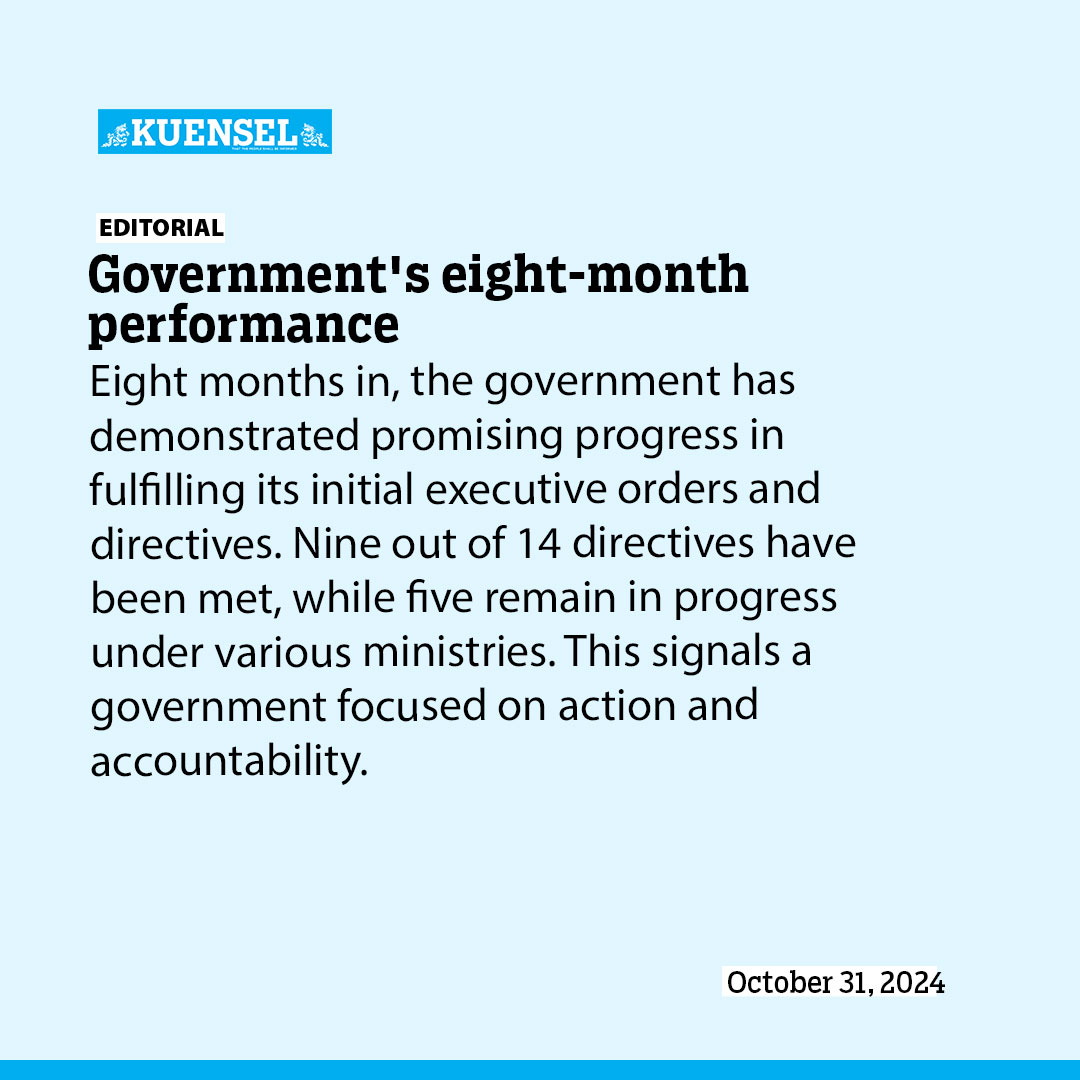Eight months in, the government has demonstrated promising progress in fulfilling its initial executive orders and directives. Nine out of 14 directives have been met, while five remain in progress under various ministries. This signals a government focused on action and accountability.
On the first day in office, the Prime Minister issued four executive orders and 10 directives to various ministries to bring swift changes. The Ministry of Industry, Commerce, and Employment, for instance, is working on three of these directives, addressing key issues such as revising the foreign direct investment policy, streamlining regulatory processes for businesses, and developing a comprehensive tourism strategy. Each of these projects has the potential to transform Bhutan’s economy by attracting investment, easing the way for entrepreneurs and enhancing tourism.
The Ministry of Health and the Ministry of Infrastructure and Transport have undertaken crucial studies, such as enhancing services at JDWNRH, the country’s largest hospital, and exploring new airstrip sites to improve accessibility. These initiatives, while complex, address vital aspects of public welfare and infrastructure development.
Several of the administration’s completed initiatives reflect its responsiveness to public concerns. A prime example is the abolition of the Nu 10 fee at the Phuentsholing pedestrian terminal, a small but symbolically significant change for many Bhutanese citizens. Similarly, the designation of Saturdays as a non-school day, effective from May 2, aligns with the promise of better work-life balance for students and teachers alike.
The tenancy agreement adjustments for Changjiji colony residents is another positive step, allowing residents greater stability by permitting occupancy in NHDCL housing units for up to 10 years. Alongside this, the establishment of an Economic Development Board brings a structured approach to achieving the government’s Nu 15 billion Economic Stimulus Programme, which has the potential to catalyse economic activity and provide jobs.
For Bhutan’s educators, the government has also shown a willingness to listen and adapt. The revision of the Individual Work Plan for teachers marks a thoughtful step towards a fairer evaluation system. By developing objective criteria and implementing exemptions for smaller schools, the government is paving the way for an education system that is both rigorous and humane.
In the tourism sector, an action plan to boost arrivals includes 21 major actions and 72 sub-actions, a thorough strategy to help Bhutan maintain its unique status as a high-value, low-impact destination. This level of detail highlights a government serious about sustaining and expanding one of Bhutan’s most vital industries.
However, it is essential that the remaining directives do not languish in red tape or bureaucratic delays. People expect more than promises; they expect results. The government has shown that it can deliver, but the true test will be maintaining this momentum and ensuring that every promise is not just fulfilled, but impactful.
If the government stays the course, this term might indeed be remembered as one that transformed promises into tangible progress.


